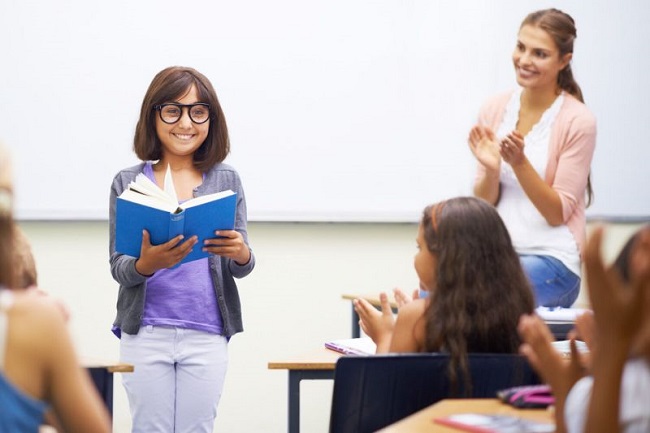Teachers' praise boost good behaviour in students
A new research reveals that the more a teacher praises a kid, the chances of the child to focus on the studies and school increases.

Washington D.C: A new research reveals that the more a teacher praises a kid, the chances of the child to focus on the studies and school increases.
The effect of praise is much more than the effect of rebuke as per the study published in 'Educational Psychology', reports CNN.
Also Read: The more girls in class, the better is boys' performance
"As elementary teachers' praise over punishment ratio increases, students' on-task behavior increases as well," said lead author Paul Caldarella, a professor in Brigham Young University's counseling, psychology and special education department.

Also Read |
Bihar: 22 students, 3 teachers in Munger school found COVID positive
Earlier research consistently showed that the easiest strategy a teacher can take up is to applaud the kids for their efforts and reinforce as well as acknowledge good student behaviour.
That, studies show, is then directly linked to better academic scores and social outcomes.
On the other hand, teacher reprimands, have shown to have adverse effects on the kids' minds. Children eventually don't feel like complying with the instructions and even misbehave more than before.

Despite proven results, the reality is not at par to the studies, shares the researchers.
Also Read |
Children bullied in schools more prone to mental health issues
Also Read: Products students should have as they prepare for exams
"Even if teachers praised as much as they reprimanded, students' on-task behavior reached 60%," Caldarella said, adding "However, if teachers could increase their praise to reprimand ratio to 2:1 or higher, they would see even more improvements in the classroom."
The researcher concluded, "Behavior that is reinforced tends to increase. So if teachers are praising students for good behavior -- such as attending to the teacher, asking for help appropriately, etc -- it stands to reason that this behavior will increase, and learning will improve." (ANI)
 Dynamite News
Dynamite News 